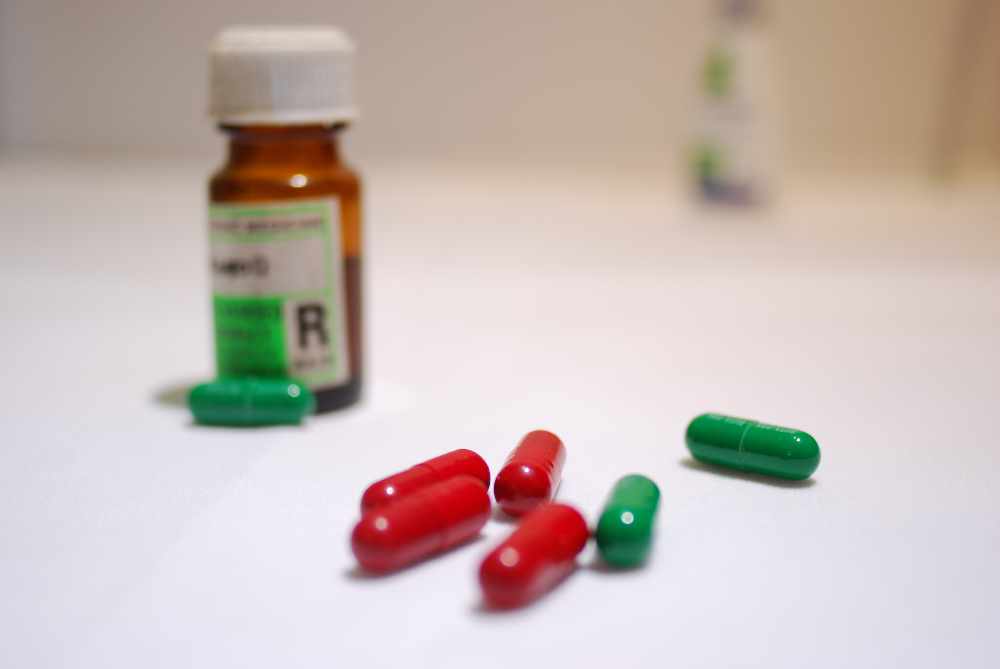
By PA
European Commission vice-president Maros Sefcovic has outlined new EU legislation that he says will address concerns about medicine supplies between Britain and Northern Ireland being disrupted by Brexit’s Northern Ireland Protocol.
At a press conference in Brussels, Mr Sefcovic said:
“It gives me great pleasure to deliver today on one of the key pieces of our package – the supply of medicines to Northern Ireland.
“During my visit to Northern Ireland in September I promised to do whatever it takes to ensure a long lasting solution on medicines, all the more so in the light of the current pandemic.
“I kept my word and today the Commission is delivering in the form of a legislative proposal ensuring that everyone in Northern Ireland has access to the same medicines at the same time as in the rest of the United Kingdom.”
Brexit Minister Lord Frost said it is “disappointing” that a fresh agreement with the European Union on the operation of the Northern Ireland Protocol has not been reached as talks for this year ended today.
In a tweet, he said he had spoken to European Commission vice-president Maros Sefcovic today and negotiations would resume in the new year.
And in a statement, he remarked that while there had been “some progress”, it had not been “as much, and not as quickly as we had hoped”.
He concluded:
“It is disappointing that it has not been possible to reach either a comprehensive or worthwhile interim agreement this year.
"A solution needs to be found urgently early next year.
"For as long as there is no agreed solution, we remain ready to use the Article 16 safeguard mechanism if that is the only way to protect the prosperity and stability of Northern Ireland and its people.”
Maros Sefcovic said the proposed legislation covers both generic medicines and innovate new medicines, such as those for cancer treatment.
“In a nutshell this will be possible because all the regulatory functions of pharmaceutical companies supplying medicines from Great Britain to Northern Ireland can remain in the UK, while no additional batch testing, manufacturing and licence authorisation or separate packaging is required,” he said.
Mr Sefcovic added:
“I am confident that this is an important milestone and that our proposals will deliver on the objectives.
“On the one hand, they answer all concerns raised by stakeholders during and our extensive outreach and at the same time we have engaged intensively with the UK Government to reach an appropriate solution.
“I’m convinced that the issue of medicines show that the protocol has the flexibility to work on the grounds.
“Therefore, we must carry this momentum into the other areas of discussion.
“The EU’s objective remains the same – to jointly identify durable solutions to ease the flow of goods between Great Britain and Northern Ireland. This covers both customs and the movement of sanitary and phytosanitary goods.”
Lord Frost said the UK would look “positively” at EU proposals published on Friday around the supply of medicines to Northern Ireland.
His statement said: “The main area of progress has been on medicine supply to Northern Ireland.
"I believe that our proposal to remove medicines from the protocol is still the most straightforward solution, given that the provision of health services is an essential state function and that Northern Ireland medicines are overwhelmingly sourced from elsewhere in the UK.
“But we have been willing to look at the EU’s preferred option, pursuing unilateral amendment of its own laws.
"The EU’s proposals, published today, follow on from discussions between our teams.
“They could constitute a constructive way forward, and we are willing to look at them positively, but as we have not been able to scrutinise the texts in the necessary detail we are not yet able to make that judgment with full confidence.”
Maros Sefcovic said he hoped there would be a “gear change” in the wider negotiations with the UK on protocol issues in the new year.
“With David Frost we will resume our talks in January with a view to reaching a conclusive understanding with the UK,” he said.
“For my part I remain committed to continue paying full attention to the implementation of the protocol, listening and engaging with the Northern Irish stakeholders, from political leaders to businesses and a cross section of civic society.
“Ladies and gentlemen, I stood here one year ago to the day welcoming solutions which would ensure that the protocol became operational in time.
“Today is a further demonstration of the EU’s unwavering commitment to stability and predictability for citizens and businesses in Northern Ireland and I urge the UK Government to reciprocate our efforts.
“The EU and the UK are partners with shared values and shared global challenges so it is time to change gear and bring our partnership to the level on which it belongs.”
Stella Kyriakides, EU commissioner for health and food safety, gave further detail.
She said patients’ access to medicines “shall never be put at risk”.
“To guarantee long-term continuous supply of medicines from the UK, our proposals make targeted amendments to our EU pharmaceutical legislation as well as targeted changes to our EU clinical trial rules,” she said.
“They give exceptional administrative flexibility to the UK in respect to Northern Ireland so that certain regulatory functions for medicines for human use, authorised by the United Kingdom for the Northern Ireland market under the protocol, may be exceptionally located in Great Britain.”
She said if a new medicine has been authorised in the UK but not yet in the EU it will be temporarily supplied to patients in Northern Ireland pending authorisation in the EU.
Describing a “viable and pragmatic solution”, she said the amendments to the legislation are expected to be in place by the end of 2022, adding that the grace period will be extended to ensure the continuation of supply of medicines to Northern Ireland.
Maros Sefcovic said the European Court of Justice is not in his mandate.
“Without the European Court of Justice we cannot have a properly functioning single market and I have to repeat again my impression that when I was talking to the stakeholders in Northern Ireland, the political and civic society representatives and business leaders, this issue was barely mentioned because the people want us to focus on solving the issues like the medicines.
“They want us to ease the trade flows between east and west, they want us to make sure that it will deliver on what we put on the table to reduce by half the customs paperwork, they want us to work together to achieve the reduction of SBS checks by 80% and to create what we suggested, the introduction of this express lane,” he said.
He said it had been their ambition to solve all these issues before Christmas.
“Unfortunately that was not possible,” he added.
“We need more reciprocation from the UK so we can deliver on what we hope would be this conclusive understanding.
“I hope that we can do it early and quickly next year.”



 Swann refuses to rule out resigning if budget is not changed
Swann refuses to rule out resigning if budget is not changed
 Fresh inquests ordered into deaths of 15 killed in McGurk’s bomb blast
Fresh inquests ordered into deaths of 15 killed in McGurk’s bomb blast
 Trial ends after man accused of murder of young showjumper is found dead
Trial ends after man accused of murder of young showjumper is found dead
 A brief hearing and chaotic scenes as Donaldson makes first court appearance
A brief hearing and chaotic scenes as Donaldson makes first court appearance